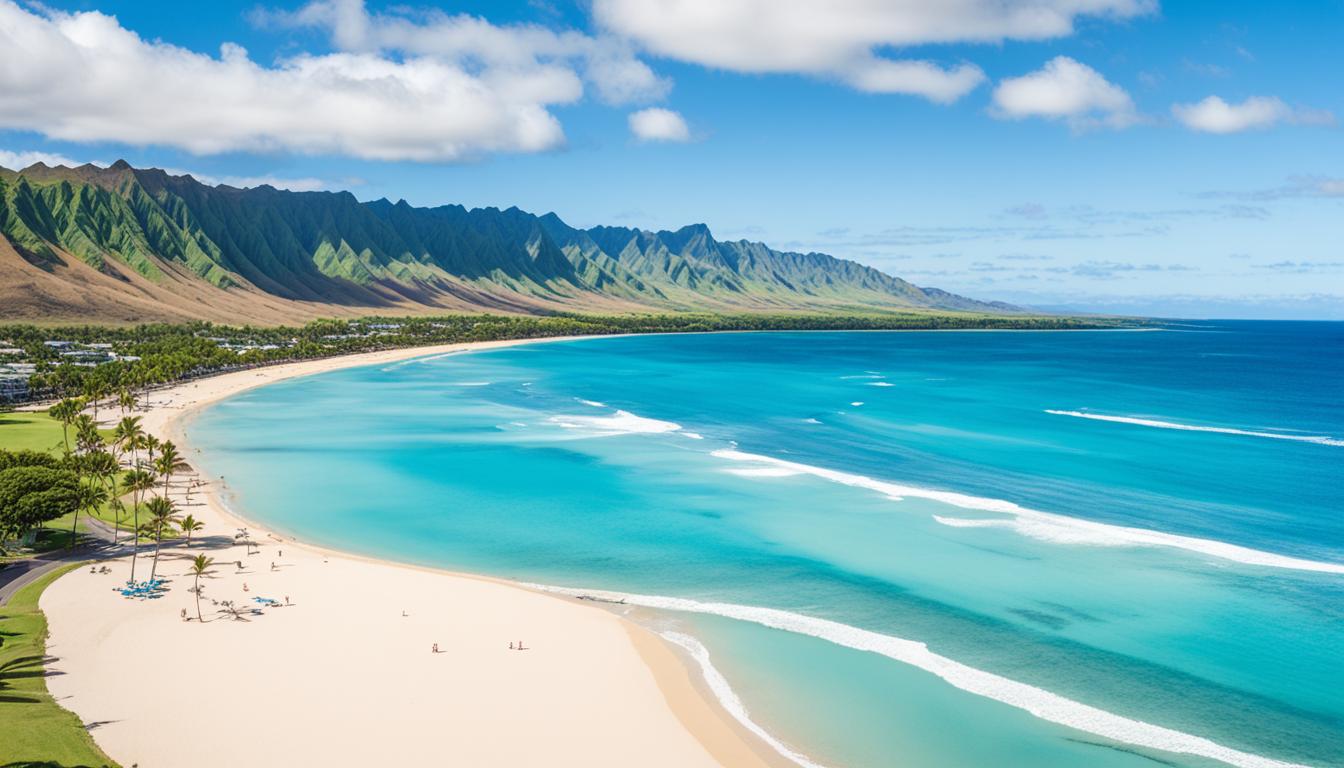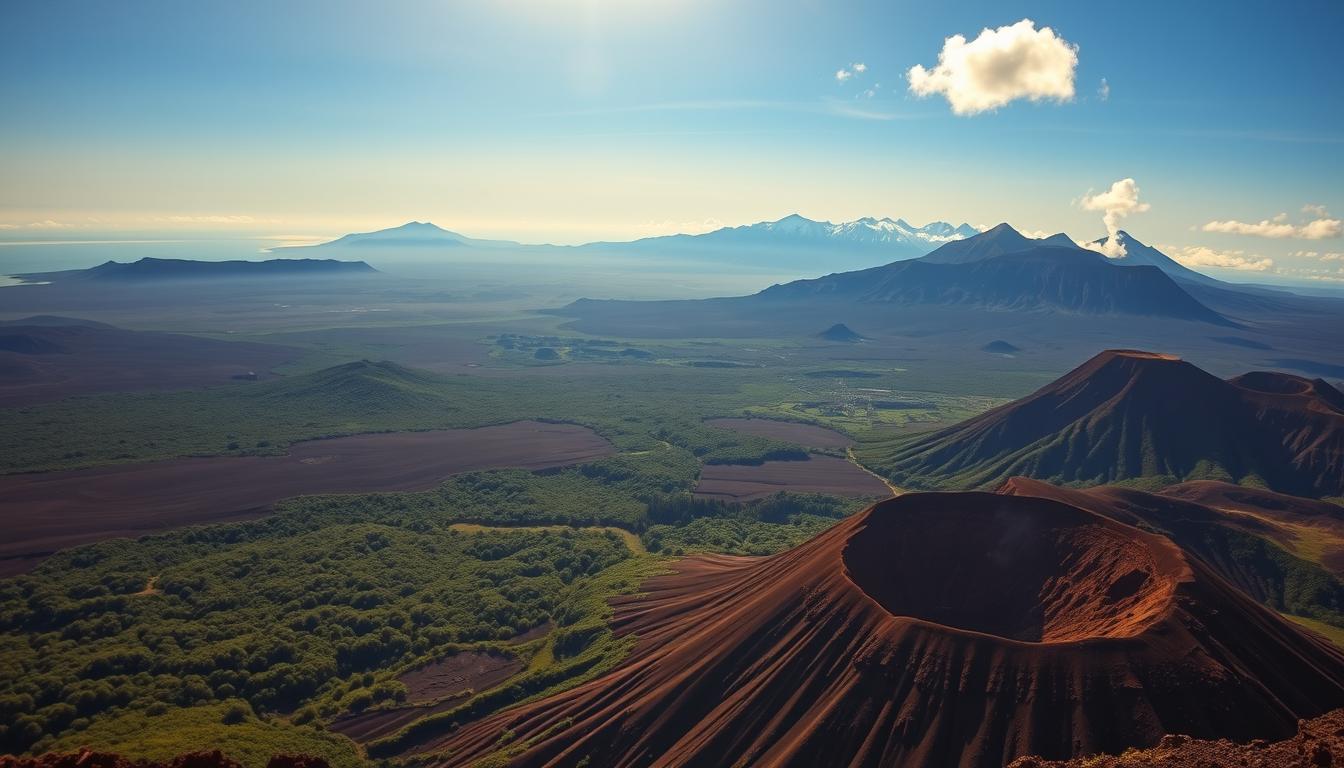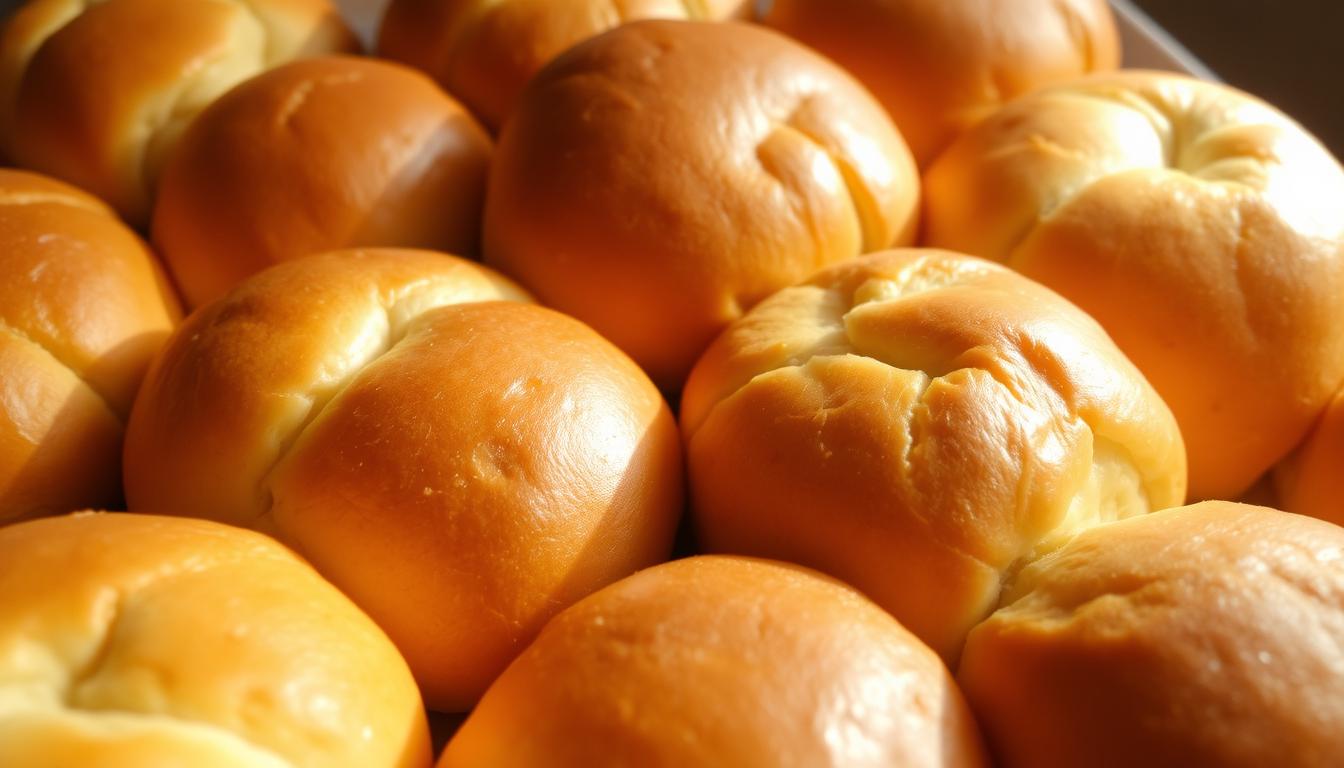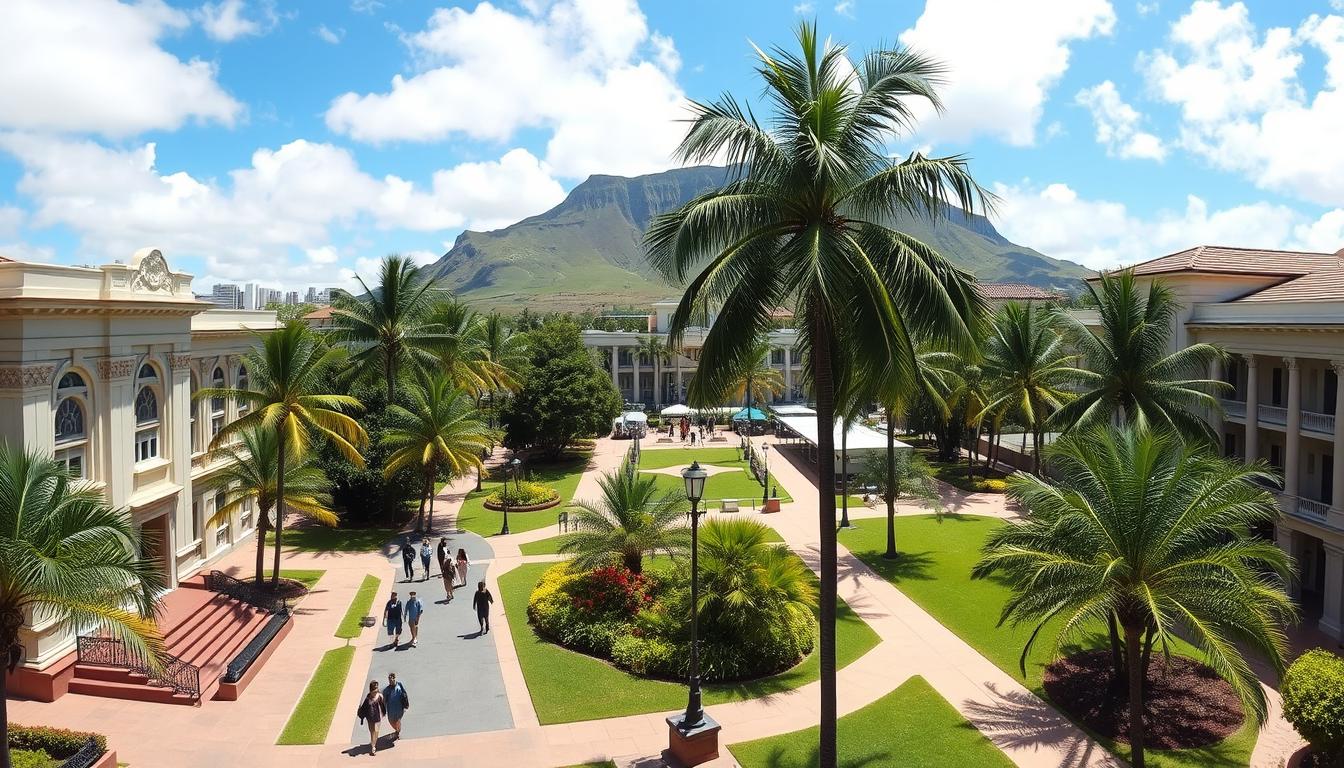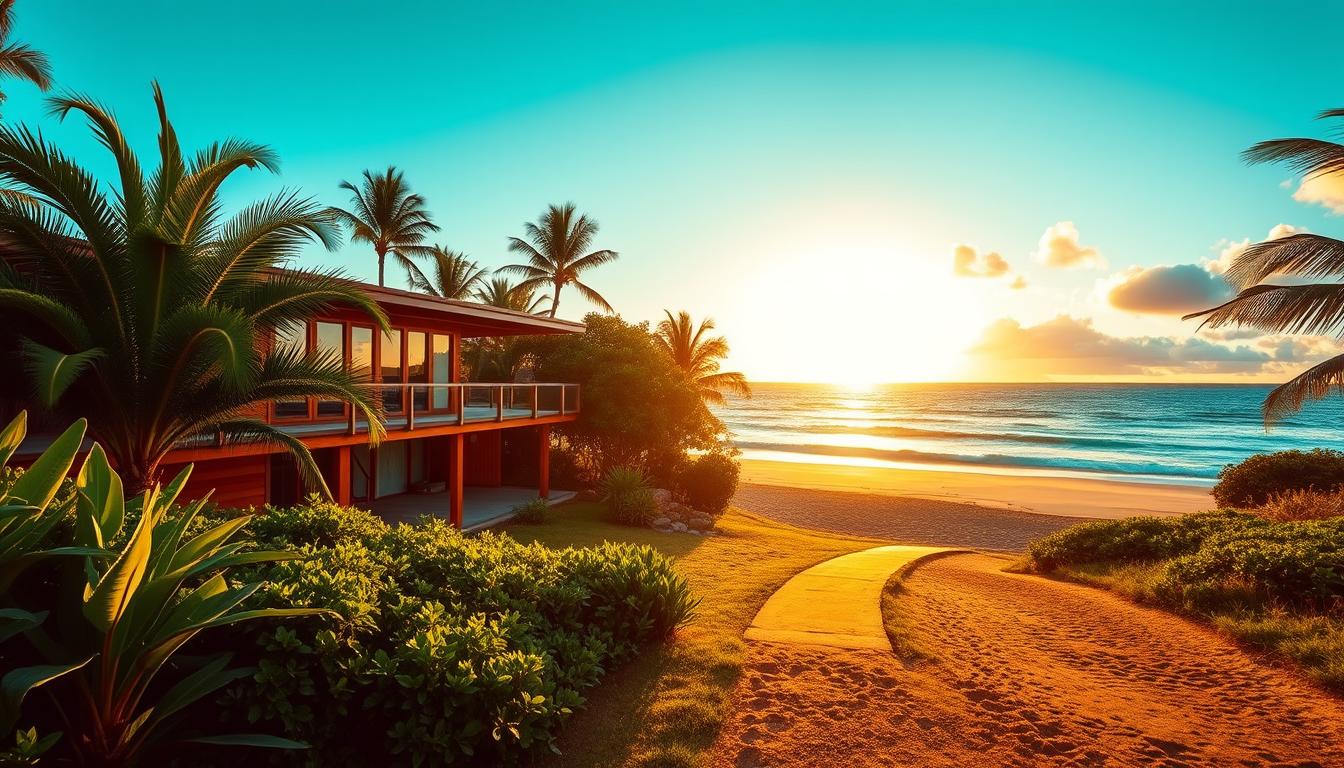Located on Oahu Island’s leeward coast, Ewa Beach is a hidden gem that encapsulates Hawaii’s tropical essence. It is situated at 21°18’56” North and 158°0’26” West, making it accessible via Fort Weaver Road (State Rte. 76), which links to Farrington Highway (State Rte. 90) and the H-1 highway. This accessibility ensures a seamless journey to this enchanting locale. Ewa Beach, with its breathtaking beaches, deep historical roots, and dynamic culture, embodies the island’s allure. It beckons travelers to delve into the heart of Hawaii’s spirit.
Key Takeaways
- Ewa Beach is a tropical paradise located on the leeward coast of Oahu Island in Hawaii.
- The community is easily accessible via the main road, Fort Weaver Road (State Rte. 76), which connects to major highways.
- Ewa Beach offers visitors a unique blend of stunning beaches, rich history, and vibrant culture.
- The area is often referred to as a “hidden gem” in the Hawaiian archipelago.
- Ewa Beach is a popular destination for those seeking an authentic Hawaiian experience.
Geographical Location and Accessibility
Ewa Beach is situated in the heart of the Hawaiian archipelago, on the leeward coast of Oahu Island. Its coordinates, 21°18’56” North and 158°0’26” West, pinpoint its location. This spot is strategically placed for easy access from various parts of the island.
Main Road: Fort Weaver Road
Fort Weaver Road (State Route 76) is the main artery linking Ewa Beach to other areas of West Oahu. It extends eastward from the coast, connecting to Farrington Highway (State Route 90) and the H-1 Highway. The H-1 Highway is the island’s primary interstate route.
Ewa Beach’s location and accessibility make it a prime spot for both locals and tourists. It offers a serene escape or an action-packed adventure, thanks to its strategic placement within the Hawaiian archipelago. This ensures effortless access to the island’s attractions and amenities.
Historical and Cultural Significance
Ewa Beach’s history stretches back to the 12th century, when ancient Hawaiians first inhabited the Ewa Plain. This area is deeply significant in Hawaiian culture, believed to be demarcated by the gods Kane and Kanaloa. The region’s legendary status underscores its profound cultural importance.
Hawaiian Settlement Dating Back to the 12th Century
The Ewa Plain, home to Ewa Beach, has been a pivotal site for Hawaiian settlement for centuries. Archaeological findings indicate that Kanaka Maoli (Native Hawaiians) settled here in the 12th century. This makes it one of the earliest inhabited areas in the region.
Legendary Origins and Significance in Hawaiian Culture
The Ewa region is deeply rooted in Hawaiian legend and mythology. Legends state that Kane and Kanaloa, revered gods, demarcated Ewa’s boundaries. This mythological significance has been crucial to the Ewa Beach community’s identity.
Exemplary Native Hawaiian Fishponds and Agricultural Terraces
Ewa Beach is celebrated for its outstanding native Hawaiian fishponds and agricultural terraces. These structures reflect the Kanaka Maoli’s innovative land management and agricultural techniques. They were essential for sustainable food production and were integral to the community’s cultural and social life.
| Feature | Description |
|---|---|
| Fishponds | The Ewa Plain boasts several ancient Hawaiian fishponds, engineered for cultivating and harvesting marine species. These ponds highlight the Kanaka Maoli’s advanced aquacultural skills. |
| Agricultural Terraces | The region is famous for its vast agricultural terraces, designed for cultivating taro, sweet potatoes, and other essential crops. These terraces illustrate the Kanaka Maoli’s sophisticated land management and farming methods. |
Ewa Beach Hawaii United States: A Hidden Gem
Ewa Beach, often referred to as a “ewa beach hidden gem,” is a true tropical paradise nestled in the heart of Hawaii. This captivating coastal community boasts pristine beaches and a stunning natural setting that provides visitors with a unique and unforgettable experience.
Pristine Beaches and Tropical Paradise
Ewa Beach’s turquoise waters and soft, golden sand beckon to those seeking a true “ewa beach tropical paradise.” From serene lagoons to lively surf spots, the area’s beaches offer a diverse range of experiences for beach-goers of all interests. Whether you’re looking to relax and soak up the sun or catch some waves, Ewa Beach’s beaches are sure to captivate and delight.
Rich History and Cultural Diversity
Ewa Beach’s history dates back to the 12th century, with deep roots in Hawaiian culture and tradition. The area is known for its 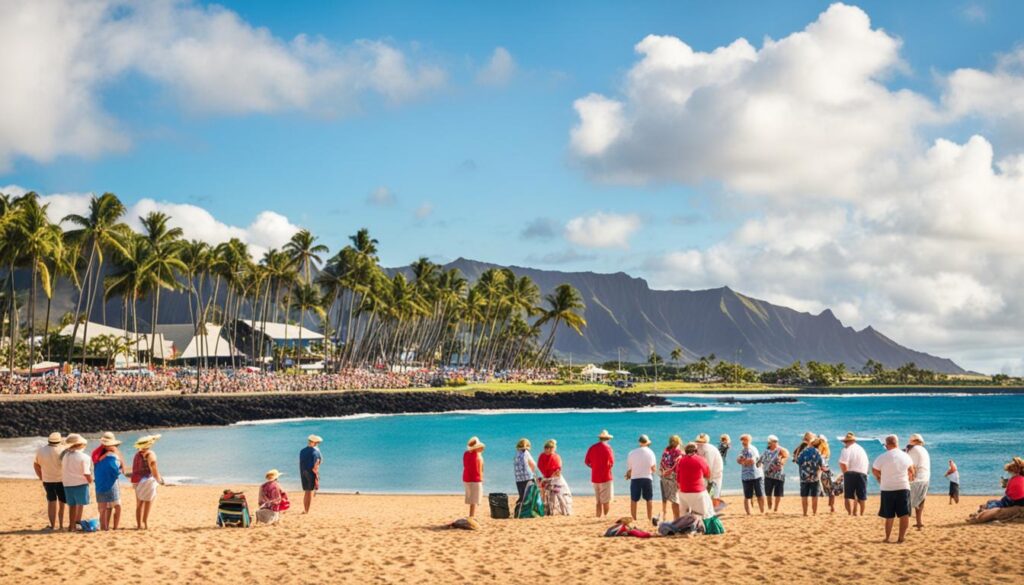 legendary origins and significant role in Hawaiian cultural practices, such as the exemplary native Hawaiian fishponds and agricultural terraces that continue to be cherished today. Visitors can immerse themselves in the “ewa beach culture” and explore the rich tapestry of this vibrant community.
legendary origins and significant role in Hawaiian cultural practices, such as the exemplary native Hawaiian fishponds and agricultural terraces that continue to be cherished today. Visitors can immerse themselves in the “ewa beach culture” and explore the rich tapestry of this vibrant community.
Vibrant Community and Welcoming Atmosphere
At the heart of Ewa Beach lies a thriving community that warmly welcomes visitors. The “ewa beach community” is known for its friendly spirit, rich cultural traditions, and diverse array of local experiences. From exploring the area’s historic landmarks to indulging in authentic Hawaiian cuisine, Ewa Beach offers a genuine and unforgettable glimpse into the true essence of the Hawaiian Islands.
Architectural Landmarks and Historic Sites
Ewa Beach, Hawaii, is a treasure trove of architectural and historical wonders. It offers a glimpse into the region’s captivating past. From the towering remnants of the Ewa Beach Sugar Mill to the charming Ewa Villages Historic District and the informative Ewa Train Depot Museum, these sites showcase the diverse heritage that has shaped this tropical paradise.
Ewa Beach Sugar Mill Ruins
The Ewa Beach Sugar Mill Ruins stand as a testament to the region’s once-thriving sugar industry. Towering chimneys and the crumbling remains of the mill serve as a poignant reminder of the integral role sugar played in Ewa Beach’s history. Visitors can explore the haunting beauty of these industrial ruins, which have become a popular destination for photographers and history enthusiasts alike.
Ewa Villages Historic District
The Ewa Villages Historic District provides a glimpse into the lives of the plantation workers who once called this area home. Meticulously preserved homes, schools, and community buildings offer a window into the past. They showcase the unique architecture and cultural traditions that were integral to the lives of these hardworking individuals. Strolling through the district allows visitors to appreciate the vibrant heritage that continues to shape the identity of Ewa Beach.
Ewa Train Depot Museum
The Ewa Train Depot Museum is a treasure trove of information on the region’s transportation history. Housed in a beautifully restored train station, the museum features exhibits on the development of the railway system that once connected Ewa Beach to the rest of the island. Visitors can explore historic locomotives, learn about the role of trains in the area’s economic growth, and gain a deeper understanding of the transportation innovations that transformed Ewa Beach over time.
Natural Wonders and Outdoor Adventures
Ewa Beach, a hidden gem on Oahu’s island, is a treasure trove of natural wonders and outdoor adventures. It boasts vibrant marine life at Kahe Point Beach Park, also known as “Electric Beach,” and serene hiking trails in the Ewa Forest Reserve. This tropical paradise is a haven for nature enthusiasts.
Kahe Point Beach Park (Electric Beach)
Kahe Point Beach Park, affectionately dubbed “Electric Beach,” is celebrated for its exceptional snorkeling and diving. The area’s diverse marine life, including tropical fish, sea turtles, and dolphins, makes it a must-visit for underwater enthusiasts. Its crystal-clear waters and stunning coral formations make Ewa Beach’s Electric Beach a snorkeling and diving paradise.
Ewa Forest Reserve
The Ewa Forest Reserve offers a serene escape for hikers and nature lovers. It features lush trails that allow visitors to discover the area’s diverse flora and fauna, including native Hawaiian plants and birds. The reserve’s scenic vistas provide breathtaking views, showcasing the natural beauty of Ewa Beach.
Snorkeling, Diving, and Hiking Opportunities
Ewa Beach offers a variety of outdoor activities beyond Kahe Point Beach Park and the Ewa Forest Reserve. Activities such as beachcombing, paddleboarding, and wildlife exploration allow visitors to immerse themselves in the area’s natural beauty. Whether you’re seeking a peaceful hike or an underwater adventure, Ewa Beach has something for every nature enthusiast.
Art, Culture, and Local Experiences
Ewa Beach, nestled in Hawaii’s heart, is a treasure trove of art, culture, and local experiences. It offers a deep dive into the island’s history and contemporary vibrancy. The Hawaii Plantation Village Museum and the Ewa Beach Cultural Center are prime examples, showcasing the area’s cultural richness.
Discover the Hawaii Plantation Village Museum
At the Hawaii Plantation Village Museum, time stands still. This living museum takes you back to the days of Hawaiian plantation life. You can wander through historical buildings, learn about the lives of plantation workers, and delve into the cultural heritage that defines Ewa Beach.
Explore the Ewa Beach Cultural Center
The Ewa Beach Cultural Center is a beacon of artistic and cultural expression. It hosts local art classes, cultural workshops, and performances that highlight the community’s diversity. This center is a platform for local artists to express their creativity and engage with visitors.
Discover the Vibrant Street Art Scene
Strolling through Ewa Beach reveals a world of vibrant street art and murals. These artworks reflect the island’s cultural depth, historical narratives, and natural splendor. They provide a unique and engaging experience for all who visit.
Ewa Beach’s offerings, from the Hawaii Plantation Village Museum to the Ewa Beach Cultural Center and the striking street art, promise an unforgettable journey into art, culture, and local experiences. These elements collectively ensure a memorable visit for everyone.
Culinary Delights and Spirited Offerings
Ewa Beach offers a unique culinary experience with its diverse flavors and spirited drinks. It presents a variety of local dishes, including kalua pork and fresh seafood in plate lunches. The area boasts several craft breweries and distilleries, where guests can enjoy locally brewed beers and spirits, including renowned Hawaiian rum. The warm hospitality and relaxed setting of Ewa Beach’s dining spots enhance the overall experience.
Local Delicacies and Plate Lunches
Ewa Beach is celebrated for its exquisite local cuisine, particularly the iconic plate lunch. These meals combine kalua pork, steamed white rice, and side dishes like lomi lomi salmon and poi. Fresh seafood specialties, including poke and laulau, also highlight the region’s oceanic abundance.
Craft Breweries and Distilleries
The craft beverage scene in Ewa Beach offers a unique insight into local culture. Craft breweries such as Aloha Beer Company and Maui Brewing Co. are notable destinations, offering a variety of beers that embody Hawaiian flavors. Distilleries like Ko Hana Distillers and Kuleana Rum Works produce outstanding Hawaiian rum and other spirits, allowing visitors to experience the island’s distilling tradition.
Hawaiian Rum and Local Beverages
Exploring Ewa Beach’s vibrant beverage scene is essential. Beyond craft beers, the region is famous for its premium Hawaiian rum. Distilleries such as Ko Hana Distillers and Kuleana Rum Works create exceptional rums that embody the islands’ spirit. Guests can also enjoy a variety of local beverages, including tropical juices and herbal teas, which highlight the region’s agricultural diversity.
FAQ
Where is Ewa Beach located?
How do I access Ewa Beach?
What is the historical and cultural significance of Ewa Beach?
Why is Ewa Beach considered a "hidden gem" in Hawaii?
What are some of the architectural landmarks and historic sites in Ewa Beach?
What outdoor activities can I enjoy in Ewa Beach?
What cultural experiences can I find in Ewa Beach?
What are some of the culinary and beverage offerings in Ewa Beach?
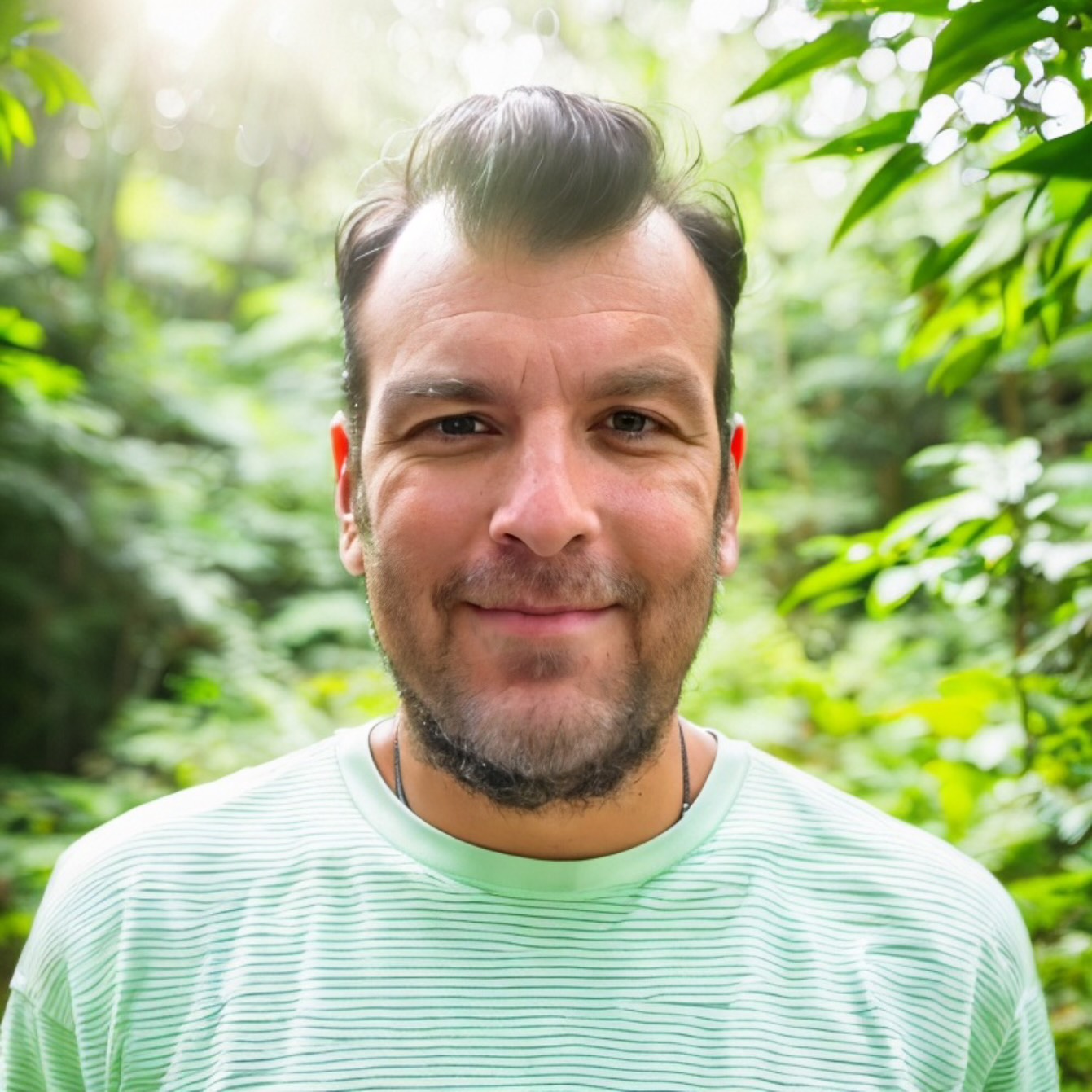
Scott Sweeney is the creator of Virtual Hawaii 360. Scott is a professional marketer and a lifelong Hawaii enthusiast. Scott splits time between Oahu and Dayton, Ohio. In addition to his marketing endevours, he is also a published Ukulele musician.

